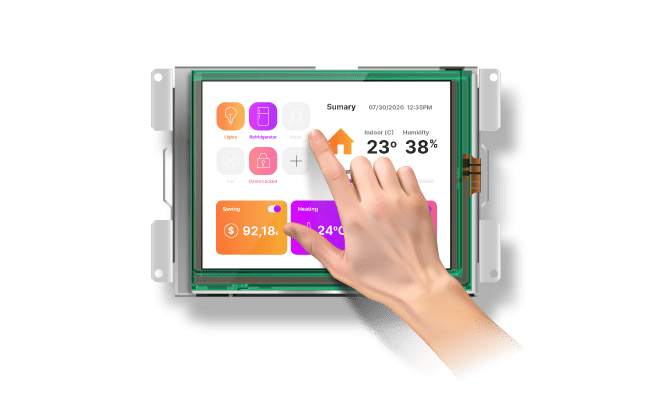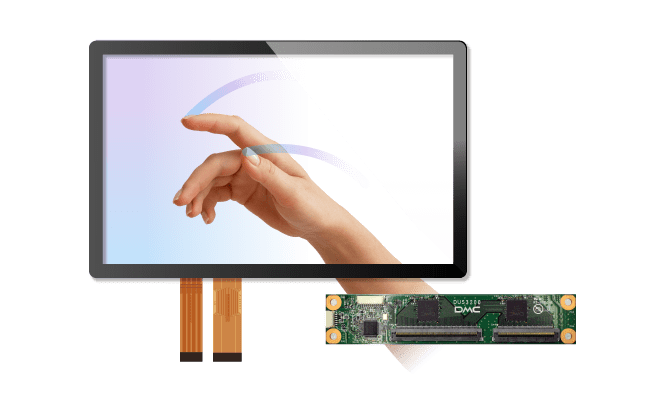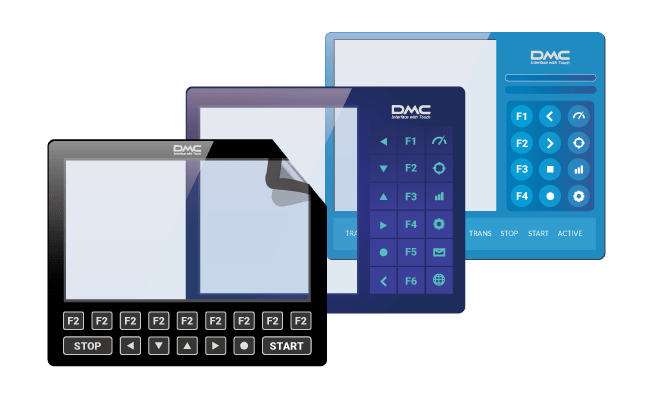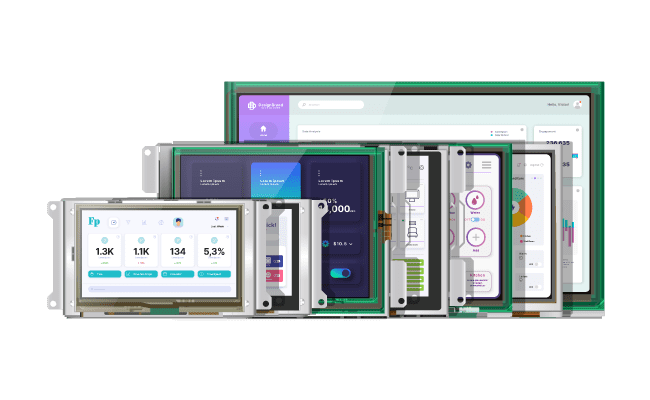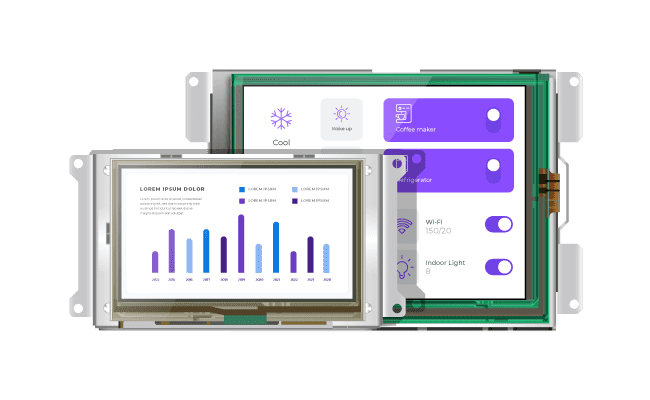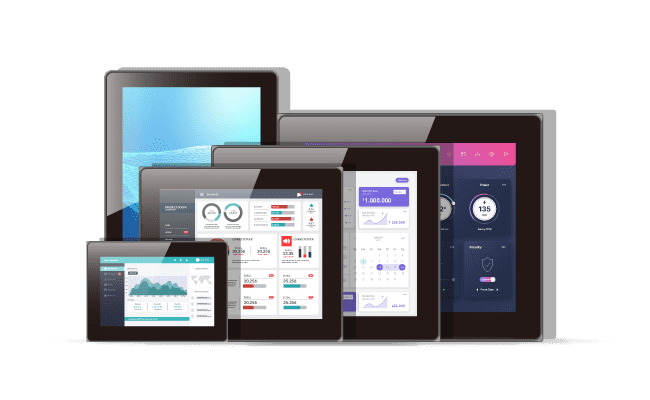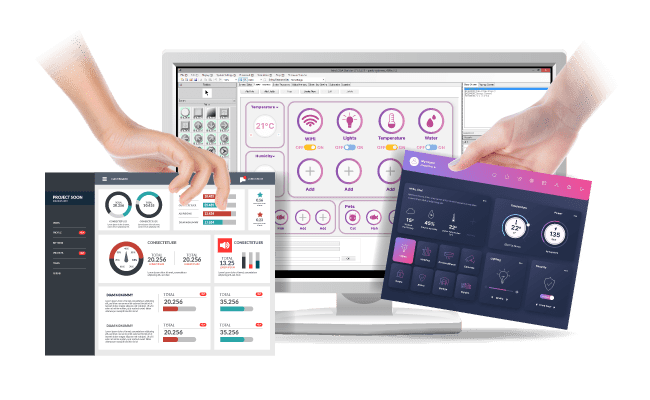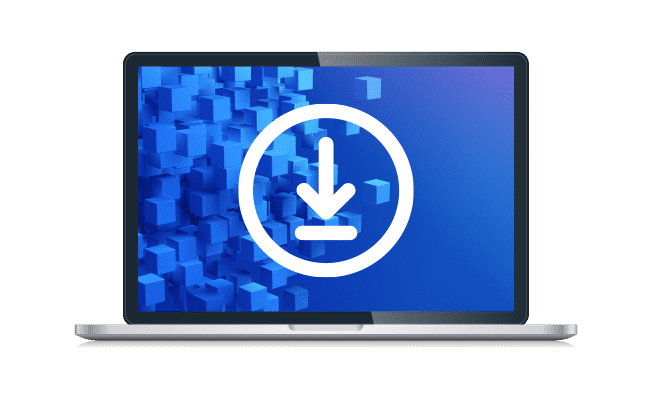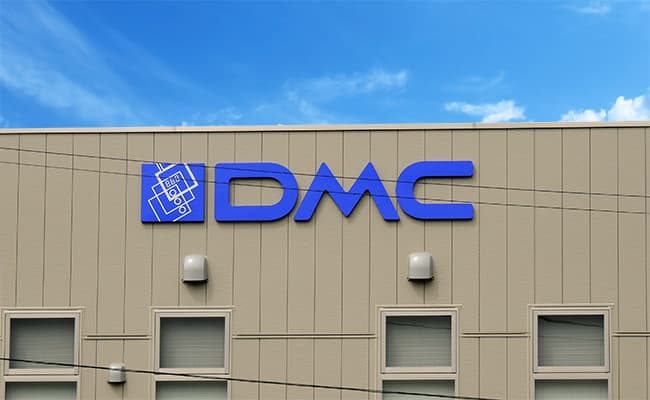SDGs
Sustainability
TOP
DMC synergetic effects among USCO Group companiesand manufactures attractive products.
Sustainability Report has been published in PDF format to summarize DMC's sustainability activities. We publish DMC Sustainability Report to explain business activities performed to respond to the expectations of our stakeholders, to build trusting relationships with them, and to deepen their understanding about our business.
-
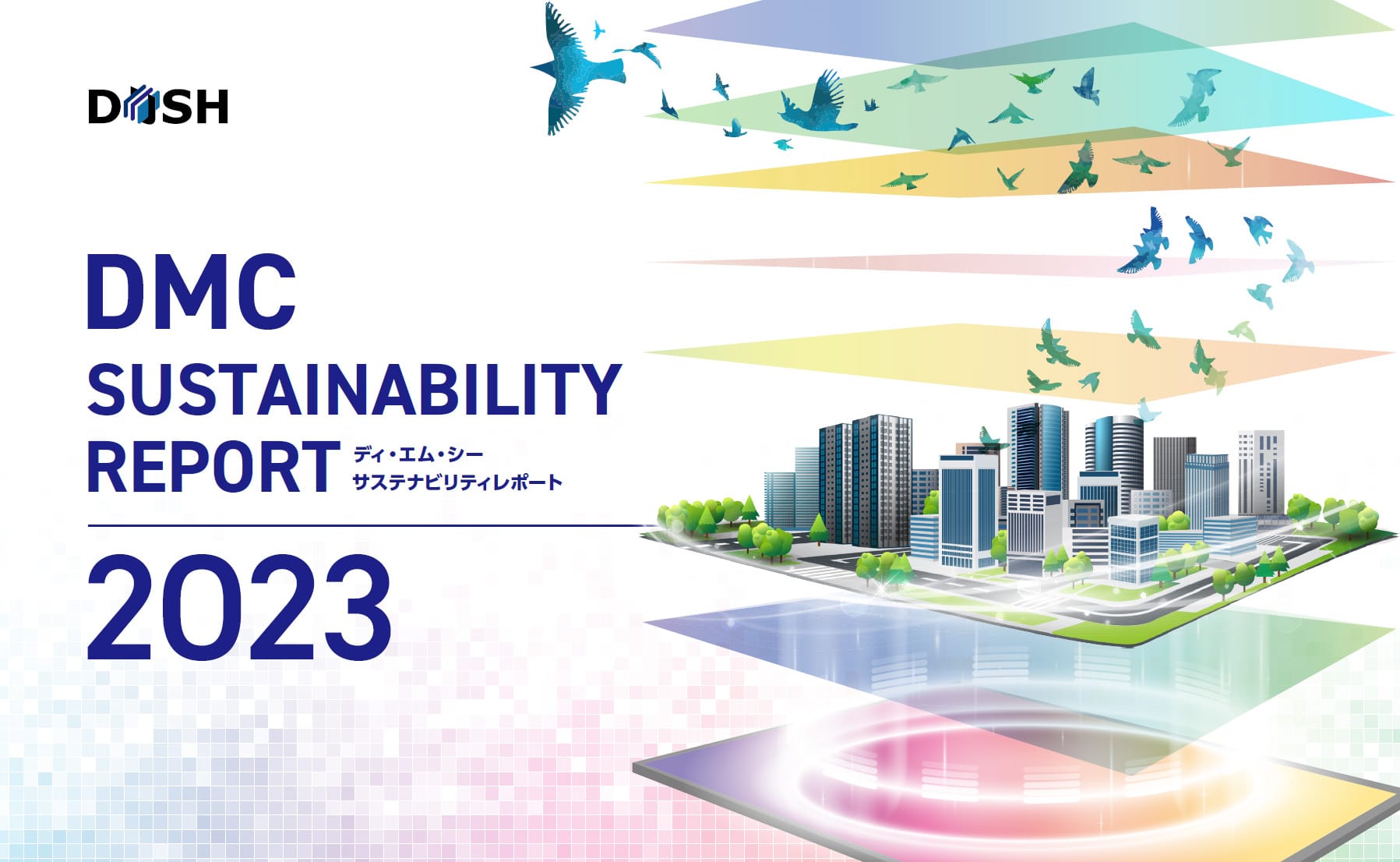 Sustainability ReportWe are a specialized touchscreen manufacturer that contributes to society with technology.
Sustainability ReportWe are a specialized touchscreen manufacturer that contributes to society with technology. -
 Top CommitmentWe continue to make sound management efforts to become a better company for All.
Top CommitmentWe continue to make sound management efforts to become a better company for All. -
 Management & SustainabilityWe will pursue people's happiness & create a better tomorrow with the new possibilities of touchscreen.
Management & SustainabilityWe will pursue people's happiness & create a better tomorrow with the new possibilities of touchscreen. -
 Product Safety & SecurityWe strive to provide high quality, safe & secure products to our customers and end users.
Product Safety & SecurityWe strive to provide high quality, safe & secure products to our customers and end users. -
 Respect for human rightsWe respect human rights and individuality, & strive to maintain appropriate labor practices.
Respect for human rightsWe respect human rights and individuality, & strive to maintain appropriate labor practices. -
 Labor PracticesWe strive to maintain appropriate labor practices so that all employees can fully demonstrate their abilities.
Labor PracticesWe strive to maintain appropriate labor practices so that all employees can fully demonstrate their abilities. -
 Supply Chain ManagementWe are working with business partners around the world to procure in a sustainable way.
Supply Chain ManagementWe are working with business partners around the world to procure in a sustainable way. -
 Environmental ConservationWe take environmental issues seriously & promote environmentally friendly initiatives.
Environmental ConservationWe take environmental issues seriously & promote environmentally friendly initiatives. -
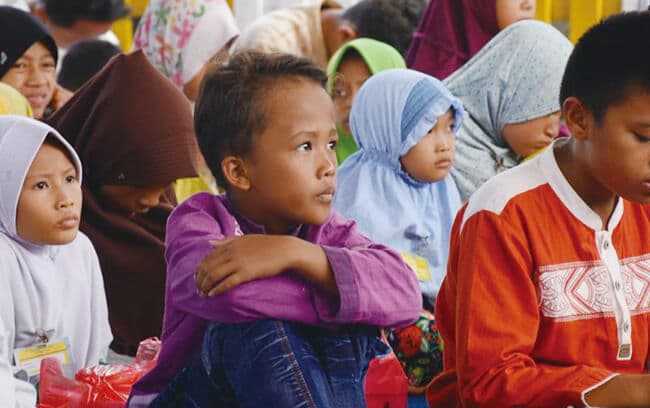 Contribute Regional SocietyOur social contribution activities to support local communities, disaster-stricken areas, & the next generation.
Contribute Regional SocietyOur social contribution activities to support local communities, disaster-stricken areas, & the next generation. -
 GovernanceWe will strive to create an effective corporate governance system based on our management policy.
GovernanceWe will strive to create an effective corporate governance system based on our management policy.
GUIDLINES
GRI Standards Content Index
Statement of use : DMC Co., Ltd. has reported the information cited in this GRI content index for the period [January 1, 2022 to December 31, 2022] with reference to the GRI Standards.
GRI 1 used : GRI 1: Foundation 2021
GRI-2: General Disclosures 2021
null
1. The organization and its reporting practices
null
2-4
Restatements of information
Not applicable
2. Activities and workers
null
2-8
Workers who are not employees
‐
3. Governance
2-10
Nomination and selection of the highest governance body
‐
2-11
Chair of the highest governance body
‐
2-12
Role of the highest governance body in overseeing the management of impacts
2-13
Delegation of responsibility for managing impacts
‐
2-14
Role of the highest governance body in sustainability reporting
2-16
Communication of critical concerns
2-18
Evaluation of the performance of the highest governance body
2-19
Remuneration policies
‐
2-20
Process to determine remuneration
‐
2-21
Annual total compensation ratio
‐
4. Strategy, policies and practices
null
2-24
Embedding policy commitments
2-27
Compliance with laws and regulations
‐
2-28
Membership associations
‐
5. Stakeholder engagement
null
2-30
Collective bargaining agreements
‐
GRI-3: Material Topics 2021
null
2. Disclosures on material topics
null
GRI 200: Economic topics
null
GRI 201: Economic Performance 2016
null
201-2
Financial implications and other risks and opportunities due to climate change
‐
201-3
Defined benefit plan obligations and other retirement plans
‐
201-4
Financial assistance received from government
‐
GRI 202: Market Presence 2016
null
202-1
Ratios of standard entry level wage by gender compared to local minimum wage
‐
202-2
Proportion of senior management hired from the local community
‐
GRI 203: Indirect Economic Impacts 2016
null
203-2
Significant indirect economic impacts
‐
GRI 204: Procurement Practices 2016
null
204-1
Proportion of spending on local suppliers
‐
GRI 205: Anti-corruption 2016
null
205-1
Operations assessed for risks related to corruption
‐
205-3
Confirmed incidents of corruption and actions taken
Not applicable
GRI 206: Anti-competitive Behavior 2016
null
206-1
Legal actions for anti-competitive behavior, anti-trust, and monopoly practices
Not applicable
GRI 207: Tax 2019
null
207-1
Approach to tax
‐
207-2
Tax governance, control, and risk management
‐
207-3
Stakeholder engagement and management of concerns related to tax
‐
207-4
Country-by-country reporting
‐
GRI 300: Environmental topics
null
GRI 301: Materials2016
null
301-1
Materials used by weight or volume
‐
301-2
Recycled input materials used
‐
301-3
Reclaimed products and their packaging materials
‐
GRI 302: Energy 2016
null
302-2
Energy consumption outside of the organization
‐
302-3
Energy intensity
‐
302-4
Reduction of energy consumption
‐
302-5
Reductions in energy requirements of products and services
‐
GRI 303: Water and Effluents 2018
null
303-5
Water consumption
‐
GRI 304: Biodiversity 2016
null
304-1
Operational sites owned, leased, managed in, or adjacent to, protected areas and areas of high biodiversity value outside protected areas
‐
304-2
Significant impacts of activities, products, and services on biodiversity
‐
304-3
Habitats protected or restored
‐
304-4
IUCN Red List species and national conservation list species with habitats in areas affected by operations
‐
GRI 305: Emissions 2016
null
305-4
GHG emissions intensity
‐
305-6
Emissions of ozone-depleting substances (ODS)
‐
305-7
Nitrogen oxides (NOx), sulfur oxides (SOx), and other significant air emissions
‐
GRI 306: Waste 2020
null
306-4
Waste diverted from disposal
‐
306-5
Waste directed to disposal
‐
GRI 308: Supplier Environmental Assessment 2016
null
308-1
New suppliers that were screened using environmental criteria
‐
308-2
Negative environmental impacts in the supply chain and actions taken
‐
GRI 400: Social topics
null
GRI 401: Employment 2016 GRI 401: Employment 2016
null
401-2
Benefits provided to full-time employees that are not provided to temporary or part-time employees
‐
GRI 402: Labor/Management Relations 2016
null
GRI 403: Occupational Health and Safety 2018
null
403-4
Worker participation, consultation, and communication on occupational health and safety
403-7
Prevention and mitigation of occupational health and safety impacts directly linked by business relationships
403-8
Workers covered by an occupational health and safety management system
‐
403-9
Work-related injuries
‐
403-10
Work-related ill health
‐
GRI 404: Training and Education 2016
null
404-3
Percentage of employees receiving regular performance and career development reviews
‐
GRI 405: Diversity and Equal Opportunity2016
null
405-2
Ratio of basic salary and remuneration of women to men
‐
GRI 406: Non-discrimination 2016
null
406-1
Incidents of discrimination and corrective actions taken
Not applicable
GRI 407: Freedom of Association and Collective Bargaining 2016
null
407-1
Operations and suppliers in which the right to freedom of association and collective bargaining may be at risk
‐
GRI 408: Child Labor 2016
null
408-1
Operations and suppliers at significant risk for incidents of child labor
‐
GRI 409: Forced or Compulsory Labor 2016
null
409-1
Operations and suppliers at significant risk for incidents of forced or compulsory labor
‐
GRI 410: Security Practices 2016
null
410-1
Security personnel trained in human rights policies or procedures
‐
GRI 411: Rights of Indigenous Peoples 2016
null
411-1
Incidents of violations involving rights of indigenous peoples
‐
GRI 413: Local Communities 2016
null
413-1
Operations with local community engagement, impact assessments, and development programs
413-2
Operations with significant actual and potential negative impacts on local communities
‐
GRI 414: Supplier Social Assessment 2016
null
414-1
New suppliers that were screened using social criteria
‐
414-2
Negative social impacts in the supply chain and actions taken
‐
GRI 415: Public Policy 2016
null
415-1
Political contributions
‐
GRI 416: Customer Health and Safety 2016
null
416-1
Assessment of the health and safety impacts of product and service categories
‐
416-2
Incidents of non-compliance concerning the health and safety impacts of products and services
No violation
GRI 417: Marketing and Labeling 2016
null
417-1
Requirements for product and service information and labeling
417-2
Incidents of non-compliance concerning product and service information and labeling
No violation
417-3
Incidents of non-compliance concerning marketing communications
No violation
GRI 418: Customer Privacy 2016
null
418-1
Substantiated complaints concerning breaches of customer privacy and losses of customer data
Not applicable
GUIDLINES
ISO26000 Content Index
In this report, DMC sustainability activities can be classified on the core subjects of ISO26000 as follows.
DRAG TO LEFT
| Core Subjects | Issues | Page Title |
|---|---|---|
| Organizational governance | Organizational governance | Top Commitment Management & Sustainability Governance |
| Human rights | 1. Due diligence 2. Human rights risk situations 3. Avoidance of complicity 4. Resolving grievances 5. Discrimination and vulnerable groups 6. Civil and political rights 7. Economic, social and cultural rights 8. Fundamental principles and rights at work |
Human Rights Labor Practices Supply Chain |
| Labor practices | 1. Employment and employment relationships 2. Conditions of work and social protection 3. Social dialogue 4. Health and safety at work 5. Human development and training in the workplace |
Human Rights Labor Practices |
| The environment | 1. Prevention of pollution 2. Sustainable resource use 3. Climate change mitigation and adaptation 4. Protection of the environment, biodiversity and restoration of natural habitats |
Top Commitment Environment |
| Fair operating practices | 1. Anti-corruption 2. Responsible political involvement 3. Fair competition 4. Promoting social responsibility in the value chain 5. Respect for property rights |
Supply Chain Governance |
| Consumer issues | 1. Fair marketing, factual and unbiased information and fair contractual practices 2. Protecting consumers' health and safety 3. Sustainable consumption 4. Consumer service, support, and complaint and dispute resolution 5. Consumer data protection and privacy 6. Access to essential services 7. Education and awareness |
Product Safety Supply Chain Governance |
| Community involvement and development | 1. Community involvement 2. Education and culture 3. Employment creation and skills developmen 4. Technology development and access 5. Wealth and income creation 6. Health 7. Social investment |
Management & Sustainability Labor Practices Social Contribution |


